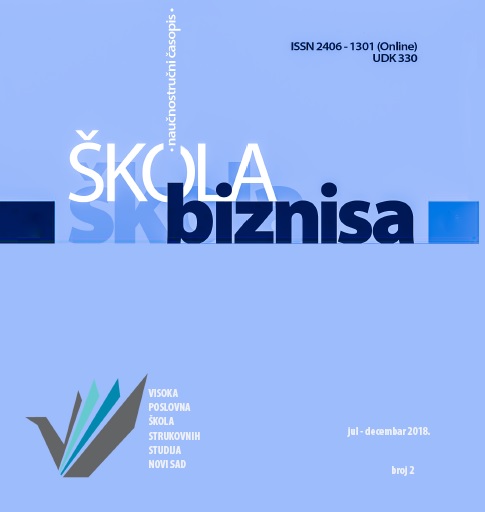OBJECTIVES, POSSIBILITIES AND LIMITATIONS OF THE IPARD II PRORAM IN THE DEVELOPMENT OF THE AGRARIAN SECTOR OF THE REPUBLIC OF SERBIA
Keywords:
European Union, Republic of Serbia, IPARD, rural development, agriculture,
Abstract
The aim of paper is to define goals, determine possibilities and limitations for development of the agrarian sector of the Republic of Serbia using IPARD Fund.
Using the historical and descriptive methods, the possibility of influencing the IPARD program on the development of agriculture in the Republic of Serbia is systematized. Also, based on the experience of other countries, potential limitations have been analyzed, which could arise when withdrawing funds from this fund. Co-financing of projects aims to increase productivity and competitiveness, harmonization with EU veterinary, sanitary and ecological standards, sustainable land management and organic production and the strengthening of infrastructure in rural areas, which is actually the biggest challenge. The degree of utilization of available resources under the IPARD program depends on several factors. Among them, institutional readiness, as well as information and education of farmers, have the greatest impact. The experiences of countries that have previously entered the process of accession to the European Union confirm the positive impact of the IPARD program on the rural economy.
Published
2019/04/10
Section
Professional Paper
Authors who publish with this journal agree to the following terms:
- Authors retain copyright and grant the journal right of first publication with the work simultaneously licensed under a Creative Commons Attribution License that allows others to share the work with an acknowledgement of the work's authorship and initial publication in this journal.
- Authors are able to enter into separate, additional contractual arrangements for the non-exclusive distribution of the journal's published version of the work (e.g., post it to an institutional repository or publish it in a book), with an acknowledgement of its initial publication in this journal.
- Authors are permitted and encouraged to post their work online (e.g., in institutional repositories or on their website) prior to and during the submission process, as it can lead to productive exchanges, as well as earlier and greater citation of published work (See The Effect of Open Access).

